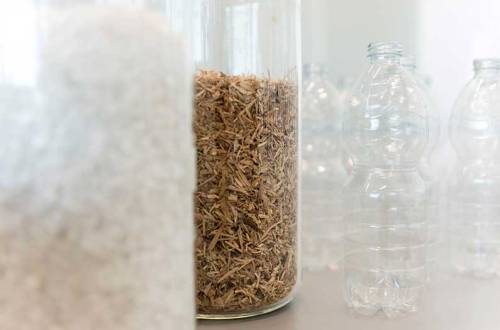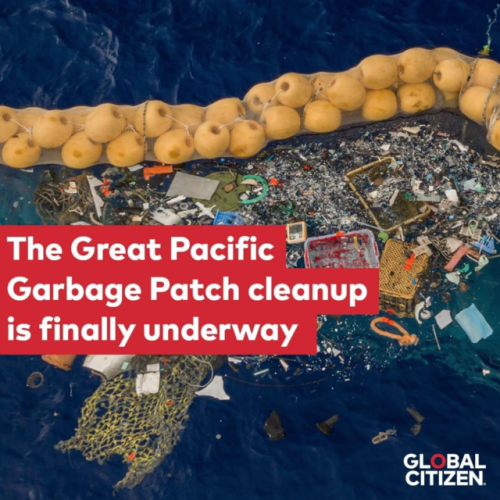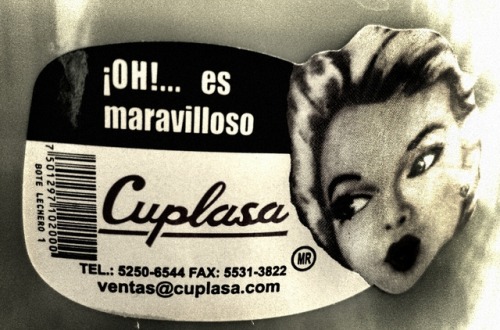#plastic

India Proposes Phase Out of Single-Use Plastic Items by 2022
India’s central government has issued a draft nationwide proposal to mandate certain requirements for plastic carry-out bags and to ban certain single-use plastics beginning in 2022.
Coca-Cola Introduces New 100% Recycled Bottle in U.S.
In December 2020, a reportfoundCoca-Cola was the top corporate plastic polluter for the third year in a row, meaning its products were found clogging the most places with the largest amounts of plastic pollution.
The company seems to be aiming to clean up its act somewhat this year with the introduction of a 13.2-ounce bottle made with 100-percent recycled PET (rPET) plastic. The company announced the new bottle’s debut in select U.S. states this February, but environmental organizations said the move was too little, too late.
“In 1990, Coca-Cola and Pepsi announced plans to sell their products in recycled plastic bottles. The Washington Post quoted Greenpeace as ‘unimpressed’ at the time, urging the companies to eliminate single-use plastics altogether,” Greenpeace USA senior plastics campaigner Kate Melge said in a statement emailed to EcoWatch. “Thirty one years later, companies should not still be boasting about transitioning to recycled content. We remain unimpressed.”
The new bottles are the first ever made with 100 percent rPET plastic in the U.S.,
Post link
The 14th Zaisubao Plastic Recycling Industry Trade Fair in China.
PFE Continues to Expand into the European Plastics Recycling Industry
Plastics Recyclers Europe, the leading organization to define recyclability in Europe and to develop the RecyClass recyclability testing standards, has recognized Plastics Forming Enterprises (PFE) as an accredited laboratory.
Post link
Bioplastic made from wood waste is durable yet degradable
The race to make plastics renewable has led to bioplastics made from cornstarch, sugarcane, potatoes, coffee grounds, food waste, and algae. Researchers now introduce a new contender made of waste wood powder that they say could be a stronger, cheaper, and more sustainable alternative.
The bioplastic, reported in the journal Nature Sustainability, is strong: it can hold liquids without degrading and resist damage from UV light. Yet at the end of its life, it can be fully recycled or biodegraded.
Post link
The ocean cleanup device in the Pacific Ocean is finally working! The Ocean Cleanup recently announced that a boat has been able to retrieve plastic – including tires, microplastics, ghost nets, and crates – collected by the device. Read more about the Ocean Cleanup at this link.
(: Courtesy of The Ocean Cleanup)
Post link
SUPERVIXEN
shop.hopelesslingerie.com
P: Steph Cammarano
M: Claryssa Humennyi-Jameson
MU: Emma Craddock
H: Elena Nardone
Assistant: Amy Evelen Pollock
Post link
Alberto Burri (Italian, 1915-1995), Rosso plastica [plastic red], 1963. Plastic, acrylic and combustion on canvas, 60 x 52 cm
Post link
So, there’s apparently research coming out now about microplastics being found in people’s bloodstreams and the possible negative effects of that and I feel the need to get out ahead of the wave of corporate sponsored “be sure to recycle your bottles!” or “ban glitter!” campaigns and remind everyone:
It’s fishing nets. It’s fishing nets. It is overwhelming fishing nets It always has been fishing nets.Unless regulations are changed, it will continue to be fishing nets.
The plastic in the ocean in largely discarded nets from industrial fishing. The microplastics are the result of these nets breaking down. The “trash islands” are also, you guessed it. Mostly fishing nets and other discarded fishing industry equipment.
Do not allow them to continue to twist the story. Do not come after disabled people who require single use plastics. Do not come after people using glitter in art projects and makeup. These things make up a negligible amount of the issue compared to corporate waste, specifically in the fishing industry. Do not let them shift the blame to the individual so they can continue to destroy the planet and our bodies without regulation.Industries are incredibly resistant to taking responsibility for their own waste, to the point where “consumers are responsible for industrial waste” is somehow considered a sensible, ethical, worthy sentence.
It is actually perfectly reasonable to say that “industries are responsible for industrial waste” and “the effects of industry can, should and must be fixed by industry” and “Industry can, should and must be held responsible for its impacts on the commons, such as air, water, oceans and land.”
I think this is important enough!






















![Alberto Burri (Italian, 1915-1995), Rosso plastica [plastic red], 1963. Plastic, acrylic and combus Alberto Burri (Italian, 1915-1995), Rosso plastica [plastic red], 1963. Plastic, acrylic and combus](https://64.media.tumblr.com/6422f6de5f9fe0ca4440cf5cab780c97/ec8c9f73c8f11015-1f/s500x750/3f2ac7e0589fbda403f3cd2abb85215653639293.jpg)
